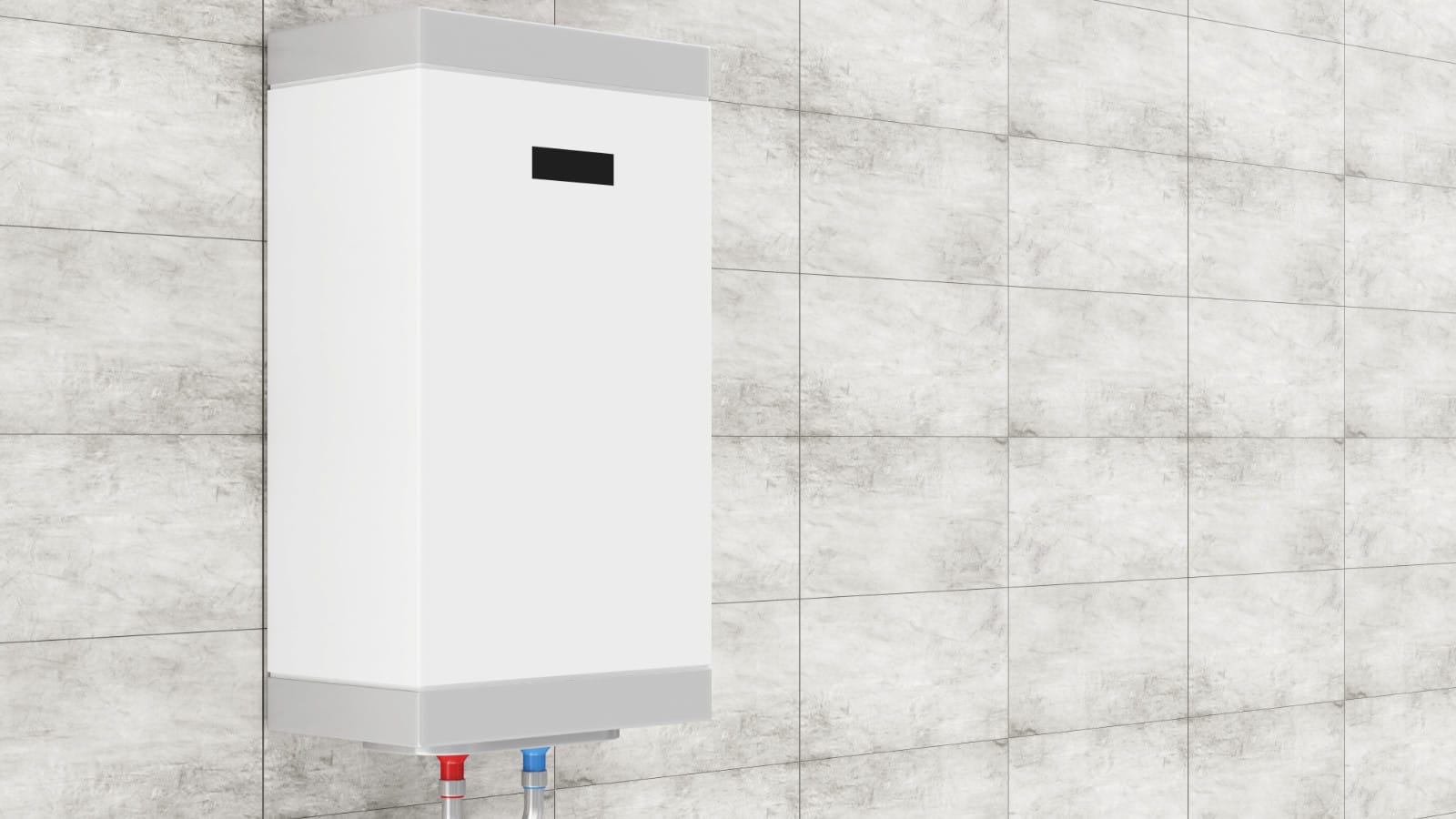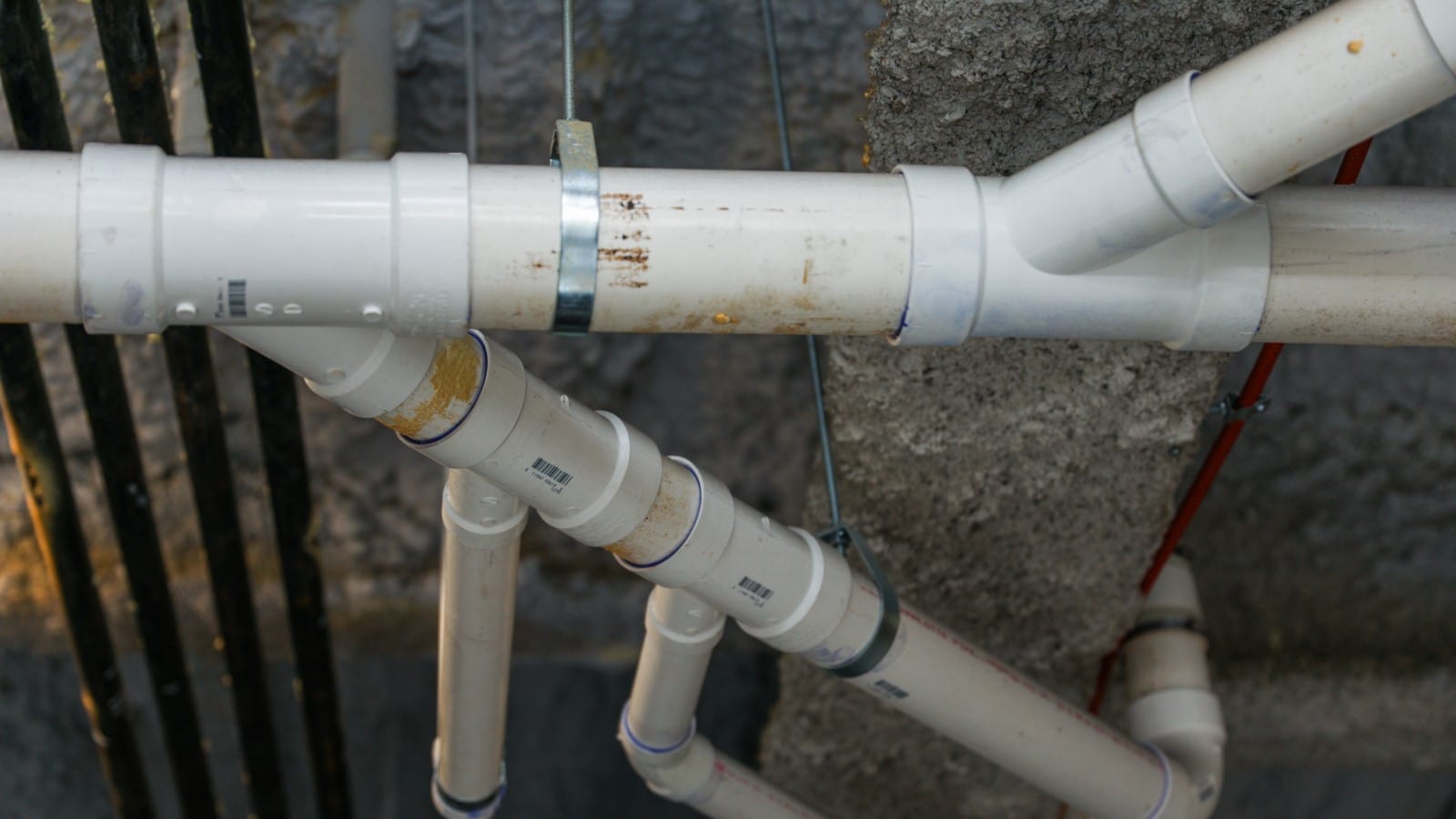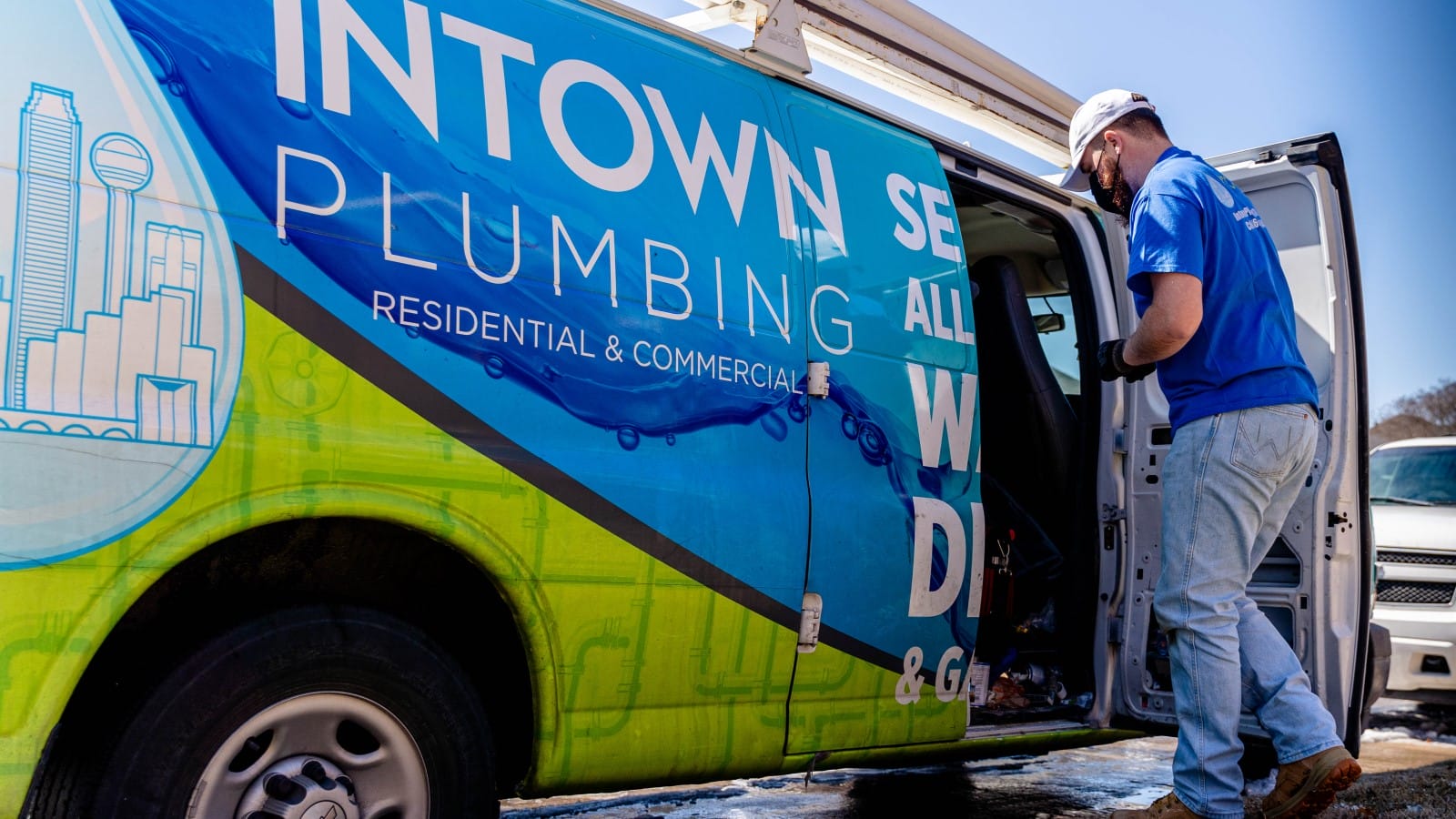Ever wondered why selecting the right water heater feels like a puzzle? It’s because ensuring hot water flows through your taps is about more than just comfort—it’s about marrying efficiency with your lifestyle needs. This guide dives deep into the world of water heaters, offering insights to empower homeowners in Rockwall, TX, and beyond with the knowledge to make informed choices. From understanding different heater types to sizing them right, we’ve got you covered.
Key Insights
- Discover the pros and cons of tankless vs. storage water heaters.
- Learn how solar and heat pump technologies can slash your bills.
- Find out the importance of correct sizing for peak efficiency.
As we embark on this journey, remember that the perfect water heater not only promises a steady supply of hot water but also aligns with your home’s energy goals and budget. Let’s dive into the essentials and beyond, ensuring you’re well-equipped to choose your ideal hot water solution.
Hot Water Heater Essentials: What You Need to Know
Hot water is a daily necessity, from showers to dishes and laundry.
The right hot water heater not only ensures a consistent supply but also impacts your home’s energy efficiency and comfort levels. Key features affecting performance include the unit’s energy source (natural gas, electricity, solar), capacity (gallons of hot water it can produce or store), and efficiency ratings.
Modern heaters come with innovative heating elements designed to optimize water temperature control and reduce energy costs, ensuring your home has an adequate supply of hot water.
Choose a Water Heater: A Step-by-Step Guide
Selecting the right water heater for your home doesn’t have to be a daunting task. By following practical steps homeowners can navigate the complexities of the water heater buying guide with ease.
- The first step is to understand the different types of water heaters available — tankless, storage, heat pump, and solar — and their respective benefits. Consider energy efficiency ratings, fuel type (electricity, gas, solar), and whether the unit fits your home’s existing energy setup.
- Next, assess your household’s hot water needs by estimating daily usage in gallons. Remember, a larger family or a home with high hot water demand may require a water heater with a larger capacity or a tankless water heater that can produce enough hot water.
- Professional installation is crucial for maximizing the benefits and ensuring safety. A correctly installed water heater not only performs at its peak efficiency but also minimizes the risk of leaks or damage.
- When choosing a new water heater, ensure the installer is certified and experienced with your chosen model. This step is essential, as water heater installation involves complex electrical, gas, or plumbing work that, if done incorrectly, can lead to inefficient operation or even pose safety hazards.
Type of Water Heater: Finding Your Perfect Match
Water heaters can be broadly categorized into several types, each with unique benefits and suited to different household needs. Here’s an overview:
- Tankless Water Heaters: Offer hot water on demand and are energy-efficient.
- Tank Water Heaters: Traditional models that store heated water in a tank.
- Solar Water Heaters: Utilize solar panels to heat water, offering great energy savings.
- Heat Pump Water Heaters: Extract heat from the air or ground to heat water, significantly reducing energy use.
- Hybrid Water Heaters: Combine technologies, such as tankless and heat pump models, to optimize efficiency and performance. Each type of water heater has its specific advantages, and the best choice for your home will depend on various factors, including household size, water usage, and energy preferences. Whether you prioritize cost savings, environmental impact, or convenience, there’s a water heater out there that’s the perfect match for your needs.
To match the water heater type with your home’s requirements, consider the following:
- Household size and demand for hot water: Larger homes or higher usage typically require more robust systems.
- Energy efficiency preferences: If reducing energy costs is a priority, consider tankless or heat pump models.
- Space considerations: Tankless models take up less space compared to traditional water tank varieties.
Choosing the right water heater involves understanding your home’s unique needs and balancing them with the desire for efficiency, cost savings, and environmental impact. Whether you’re leaning towards a traditional storage-tank water heater or exploring the benefits of a tankless heater, the right choice will ensure you always have access to the hot water your household needs.
Storage Water Heater vs. Tankless: A Comparative Analysis
Storage Water Heater
Storage water heaters maintain a reservoir of hot water available for immediate use, making them ideal for homes with high hot water demands.
However, they continuously consume energy to keep the water at a set temperature, which can lead to higher operational costs.
Tankless Water Heater
Tankless water heaters provide hot water on demand by heating water only as it is needed, leading to energy savings over time.
They have a higher initial purchase and installation cost and may require upgrades to your home’s existing infrastructure.
Tank Water Heater: The Classic Choice
Tank water heaters are a familiar sight in many homes, valued for their lower initial cost and straightforward installation. These systems heat and store a specific amount of water in a tank, making hot water available when needed.
However, they have a larger physical footprint and continuously use energy to maintain water temperature, which can increase operational costs. They are a reliable option for many, but it’s important to consider both the space available and the ongoing energy for heating in your decision.
Tankless Water Heater: The Future of Efficient Hot Water
Benefits
Tankless water heaters are renowned for providing instant hot water on demand, leading to significant energy savings and an extended lifespan compared to traditional models. These systems heat water directly without the use of a storage tank, which means they only use energy when hot water is needed.
Consideration
Despite their efficiency, tankless water heaters come with a higher upfront cost and may require system upgrades, particularly in older homes not initially equipped for such units. Installation involves adjustments to your home’s plumbing and possibly its electrical system, so it’s important to factor these potential costs into your decision.
For homeowners in Rockwall, TX, considering a tankless water heater, it’s essential to consider local water hardness and energy use patterns. The efficiency of tankless systems can be affected by hard water, which may necessitate a water softener, adding to the overall cost and maintenance.
Hybrid Water Heater: The Best of Both Worlds
Hybrid water heaters, combining the technology of tankless water heaters with conventional storage water heater models, offer a versatile solution for various household needs. These units are designed to provide the efficiency of tankless models by heating water on demand, while also maintaining a small reservoir of hot water in a storage tank to ensure immediate availability. This dual approach makes hybrid water heaters particularly suitable for homes with fluctuating hot water needs, providing:
- Efficiency: Lower operating costs compared to conventional models by using less energy to maintain hot water.
- Consistent supply: A reserve of gallons of water ready for peak usage times, ensuring you never run out of hot water.
Evaluating the suitability of hybrid water heaters for your home involves considering your household size, water usage patterns, and budget. They are an excellent choice for families that need a steady hot water supply without the wait times associated with purely tankless systems.
Water Heating Innovations: Exploring Advanced Solutions
The water heating industry is making significant strides with new technologies that boost efficiency and enhance the user experience. Some of these advancements include:
- Smart Thermostats: Allow precise temperature control from your smartphone.
- Energy Consumption Analytics: Track your usage patterns to optimize efficiency.
- Remote Scheduling: Set your water heater to operate on your schedule, ensuring hot water when needed and conserving energy when not.
- Leak Detection: Smart sensors alert homeowners to leaks before they become costly problems.
- Self-Diagnostics: Systems can monitor their performance and suggest maintenance or troubleshooting steps. These features provide homeowners with unprecedented control over their water heating systems, leading to potential savings and a more responsive home environment.
Solar Water Heater: Eco-Friendly and Cost-Efficient
Solar water heaters use solar panels to capture and convert sunlight into heat, transferring it to water in a storage tank.
This process significantly reduces reliance on traditional energy sources, making it an environmentally friendly and cost-effective option for heating water.
In Rockwall, TX, the ample sunlight makes solar water heaters a viable option, though consideration should be given to the initial installation costs and the positioning of solar panels to maximize sun exposure.
Heat Pump Water Heater: High Efficiency and Low Operating Costs
Heat pump water heaters are a game-changer in home heating, using advanced technology to provide significant efficiency and cost savings. By extracting heat from the air and transferring it to water, they use less electricity, offering:
- Substantial utility bill savings for the energy-conscious homeowner.
- Reduced environmental impact with a smaller carbon footprint.
In Rockwall, TX, with its mild winters, these heaters are particularly effective, though it’s essential to consider:
- Local climate: Best in areas without freezing temperatures.
- Household needs: Ideal for families with high hot water usage.
Heating Element: The Heart of Your Water Heater
The heating element in your water heater is crucial for its efficiency and longevity. Various types of heating elements exist, each with its impact on how quickly and efficiently the water is heated. From the traditional resistance coils used in electric water heaters to the innovative condensing units in high-efficiency models, the choice of heating element can significantly affect your utility bills and the environment. To ensure your water heater remains efficient and reliable, regular maintenance of the heating element and the entire system is vital. Here are a few tips:
- Annual inspections: Check for sediment build-up and signs of wear.
- Temperature settings: Optimal settings can reduce energy consumption without compromising on comfort.
Proper care extends the life of your water heater and ensures that it continues to heat the water efficiently, providing warm water when you need it without unnecessary waste.
Water Heater Sizes: Finding Your Fit
Choosing the correct size for your water heater is critical to ensure it provides enough hot water for your household’s needs without wasting energy. An oversized unit will incur unnecessary energy costs, while an undersized one will lead to a shortage of hot water. To find your fit, consider the following methods:
- First-hour rating (FHR) for storage water heaters: This measures how many gallons of water the heater can produce in an hour. Match this to your peak hour demand.
- Gallons per minute (GPM) for tankless water heaters: Calculate the GPM needed based on the number of devices (showers, sinks, etc.) used simultaneously.
Calculating the right size involves assessing the family size, water usage patterns (such as simultaneous showers or running the dishwasher), and peak hot water usage. For instance, building a new home with multiple bathrooms will require a water heater with a higher capacity compared to a smaller, single-bathroom home. This tailored approach ensures you enjoy sufficient hot water while maximizing efficiency and performance.
Decoding Water Heater Types: A Comprehensive Guide to Hot Water Solutions Summarized
In concluding our exploration into the world of water heaters, we’ve armed you with all you need to know to make an informed decision. From the efficiency of tankless models to the steadfast reliability of storage tank water heaters, each option offers unique benefits tailored to different needs. Here’s a quick recap to guide your choice:
- Understanding tankless and storage tank water heaters to match your lifestyle.
- Embracing solar and heat pump technologies for cost and environmental savings.
- Sizing your water heater correctly ensures efficiency and meets demand.
Armed with this knowledge and a keen sense of your home’s requirements, you’re well on your way to choosing a water heater that not only guarantees a continuous supply of hot water but also aligns with your energy efficiency goals and budget.





